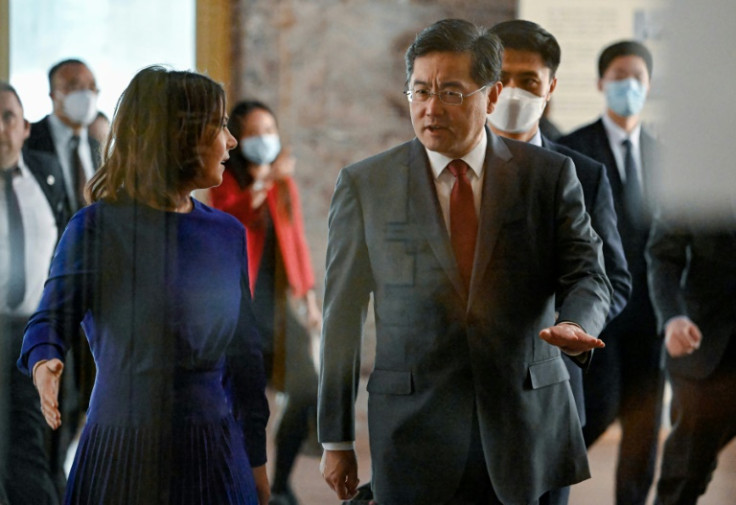China Removes Foreign Minister Qin Gang: What We Know So Far

Chinese foreign minister Qin Gang was abruptly removed from office this week, deepening a mystery over what precisely has happened to a one-time confidant of President Xi Jinping and one of Beijing's most well-known officials.
Here's what we know so far about the dramatic removal of one of China's most prominent diplomats.
Qin, considered close to President Xi, was appointed foreign minister in December 2022.
The 57-year-old spent several years at the Chinese embassy in London and is a fluent English speaker.
Qin earned a reputation as a "Wolf Warrior", a nickname given to a new generation of Chinese diplomats who push back with often inflammatory rhetoric against Western criticism of Beijing.
He said in 2020 that the image of China in the West had deteriorated because Europeans and Americans -- in particular the media -- had never accepted the Chinese political system or its economic rise.
While serving as ambassador to the United States, Qin stepped up his visibility through public and media appearances in Washington in which he explained the Chinese position.
He kept up a busy schedule after his appointment as minister, visiting Africa, Europe and Central Asia as well as hosting foreign dignitaries in Beijing.
On Tuesday, after not being seen in public for a month, China's top lawmaking body met and removed Qin from his position.
"Qin Gang was removed from the post of foreign minister," state news agency Xinhua reported, adding that President Xi "signed a presidential order to effectuate the decision."
No reason has been given for his removal.
But on Wednesday, the website of the Chinese foreign ministry was abruptly scrubbed of any mention of Qin.
The rumour mill has gone into overdrive since Qin's disappearance, with some online claiming the diplomat's alleged affair with a prominent television anchor had landed him in hot water.
And while China's foreign ministry said "health reasons" were to blame for Qin's absence, a spokeswoman later deflected further questions about the missing diplomat.
"On the basis of all available evidence, it seems very unlikely this matter is only -- or at all -- health-related," China law expert Neysun Mahboubi told AFP.
After weeks of "ceaseless speculation", he added, "it beggars the imagination that a primarily health-related cause would not have been clarified a lot more forcefully than we have seen."
Qin has not been seen in public since June 25, when he met Russian deputy foreign minister Andrey Rudenko in Beijing.
But it was his absence from a high-level ASEAN summit in Indonesia two weeks later that first raised eyebrows.
Qin's absence left a vacuum at the top of China's foreign ministry.
A visit by the European Union's foreign policy chief Josep Borrell to Beijing was abruptly called off this month.
And Bloomberg reported on Friday that a visit by UK Foreign Secretary James Cleverly was postponed due to Qin's absence.
Top diplomatic official Wang Yi -- who outranked Qin in China's political hierarchy -- has taken up the job of foreign minister, a job he held before Qin's appointment.
Beijing insisted Monday that "China's diplomatic activities are moving forward steadily".
And US Secretary of State Antony Blinken said Wednesday that he expects to "work well" with Wang, promising to "work with whoever the relevant Chinese counterpart is."
Given Wang's experience, experts said they expect Chinese diplomacy to carry on as normal -- despite the political drama in Beijing.
"I do not expect China's foreign policy to shift significantly on account of Qin Gang's exit," Ryan Hass, a Brookings scholar on China and a former US National Security Council official, told AFP.
"Qin was more an implementor and articulator of China's foreign policy than an architect of it," he added.
"Wang Yi is one of the world's most experienced and recognizable diplomats. He will ably carry forward China's foreign policy."
© Copyright AFP 2024. All rights reserved.





















